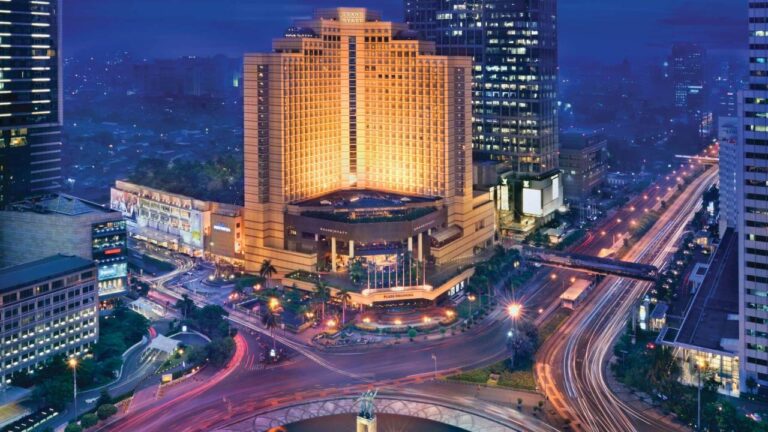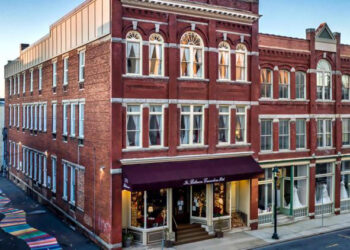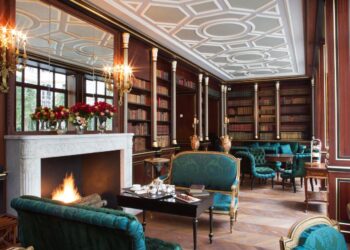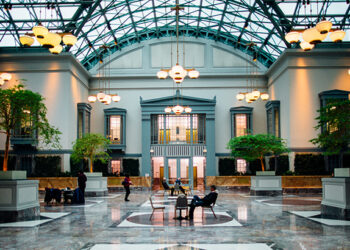In the pulsating heart of metropolises worldwide, city hotels stand as indispensable pillars of urban living, offering far more than just a place to rest your head. They are dynamic hubs, seamlessly integrating into the urban fabric, providing comfort, convenience, and a strategic base for both business and leisure travelers to explore, work, and connect. For those drawn to the energy of city life, these establishments are crucial gateways to culture, commerce, and unparalleled experiences. This comprehensive guide delves deep into the multifaceted world of city hotels, exploring their evolving role, the diverse array of services they offer, and their profound impact on the vitality of urban centers globally.
The Dynamic Role of City Hotels in Urban Ecosystems
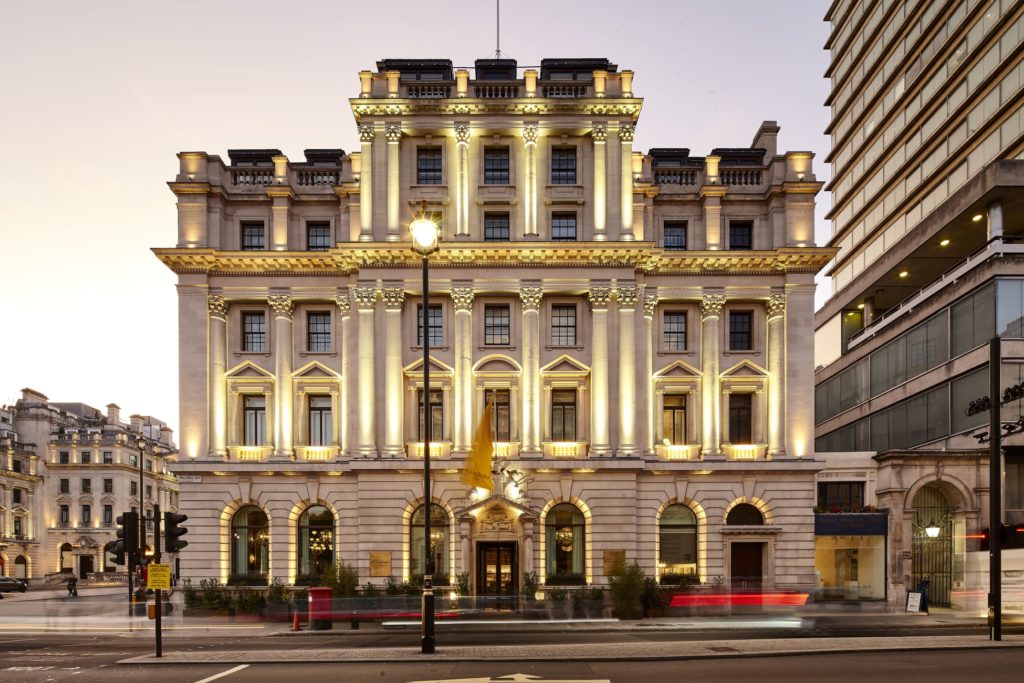
City hotels are uniquely positioned within the urban landscape, acting as micro-ecosystems that cater to a wide spectrum of needs, reflecting the vibrancy and demands of their metropolitan surroundings.
A. Strategic Location and Accessibility
The primary advantage of city hotels lies in their strategic location and unparalleled accessibility. They are typically situated in central business districts, near major transportation hubs (train stations, subway lines, airports), iconic tourist attractions, and bustling shopping or entertainment zones. This prime positioning allows guests to:
A. Minimize Commute Times: Business travelers can easily access corporate offices and convention centers, while leisure guests can quickly reach museums, theaters, and famous landmarks.
B. Leverage Public Transportation: Proximity to subway, bus, and train networks means guests can navigate the city efficiently and affordably, reducing reliance on taxis or rental cars.
C. Access Diverse Dining and Entertainment: Being in the heart of the action means an endless array of dining options, from casual eateries to Michelin-starred restaurants, as well as theaters, live music venues, and nightlife, are just steps away.
This intrinsic connection to the urban pulse defines the city hotel experience.
B. Catering to Diverse Traveler Segments
City hotels master the art of accommodating a highly diverse range of traveler segments, each with unique requirements.
A. Business Travelers: Seeking efficient check-in/out, high-speed internet, business centers, meeting facilities, and easy access to corporate clients. Comfort and productivity are key.
B. Leisure Tourists: Looking for convenient access to sightseeing, shopping, cultural experiences, and entertainment. Proximity to attractions and a vibrant atmosphere are often priorities.
C. Event Attendees: Guests attending conferences, concerts, or sporting events require hotels close to venues, often with group booking capabilities and flexible services.
D. Transit Passengers: Those on layovers or with early flights/late arrivals need hotels with excellent airport connectivity, comfortable beds, and often 24-hour services.
E. Local Staycationers: Urban residents seeking a temporary change of scenery, often valuing luxurious amenities, fine dining, or unique local experiences within their own city.
This ability to pivot services for various demographics showcases their adaptability.
C. Versatile Facilities and Services
To meet these diverse needs, city hotels offer a wide array of versatile facilities and services that go beyond just a room.
A. Business Amenities: Fully equipped business centers, meeting rooms with AV technology, co-working spaces, high-speed Wi-Fi, and printing services are standard for corporate guests.
B. Dining Options: From casual cafes and grab-and-go delis to sophisticated fine-dining restaurants and lively bars, city hotels provide a spectrum of culinary experiences. Many feature renowned chefs or signature dishes that attract locals as well.
C. Fitness and Wellness: Well-equipped gyms, often open 24/7, are common. Some larger city hotels may include indoor pools, spas, and wellness centers, offering a refuge from the urban hustle.
D. Concierge Services: Knowledgeable concierges provide invaluable local insights, assist with bookings for tours, shows, and restaurants, and offer personalized recommendations, acting as cultural ambassadors.
E. Event Spaces: Ballrooms, conference halls, and smaller breakout rooms cater to corporate events, weddings, and social gatherings, making the hotel a central venue for urban activity.
D. Reflecting Local Culture and Trends
Modern city hotels increasingly strive to reflect local culture and trends in their design, decor, and service offerings. This can manifest through:
A. Art and Design: Showcasing local artists, incorporating elements of traditional architecture, or featuring contemporary design trends that define the city.
B. Culinary Experiences: Offering menus that highlight regional ingredients and traditional dishes, or collaborating with local celebrity chefs.
C. Community Integration: Partnering with local businesses, organizing tours that explore hidden gems, or hosting local events that invite the community in, blurring the lines between hotel and city.
This integration allows guests to feel truly immersed in the destination, rather than simply observing it.
E. Technology Integration for Seamless Experience
Technology is a critical enabler for efficiency and convenience in city hotels, ensuring a seamless guest experience.
A. Digital Check-in/Out: Mobile apps or self-service kiosks expedite arrivals and departures, reducing wait times, a crucial factor in fast-paced urban environments.
B. Smart Room Controls: Tablets or voice assistants in rooms allow guests to control lighting, temperature, and entertainment, and order services, providing intuitive comfort.
C. High-Speed Connectivity: Robust Wi-Fi and ample charging ports are essential for both business productivity and leisure connectivity, allowing guests to stay connected with the world.
D. Digital Concierge/Info Hubs: In-room screens or mobile apps provide instant access to hotel services, local maps, event listings, and transportation information, empowering guests with real-time data.
The Evolution of City Hotel Concepts
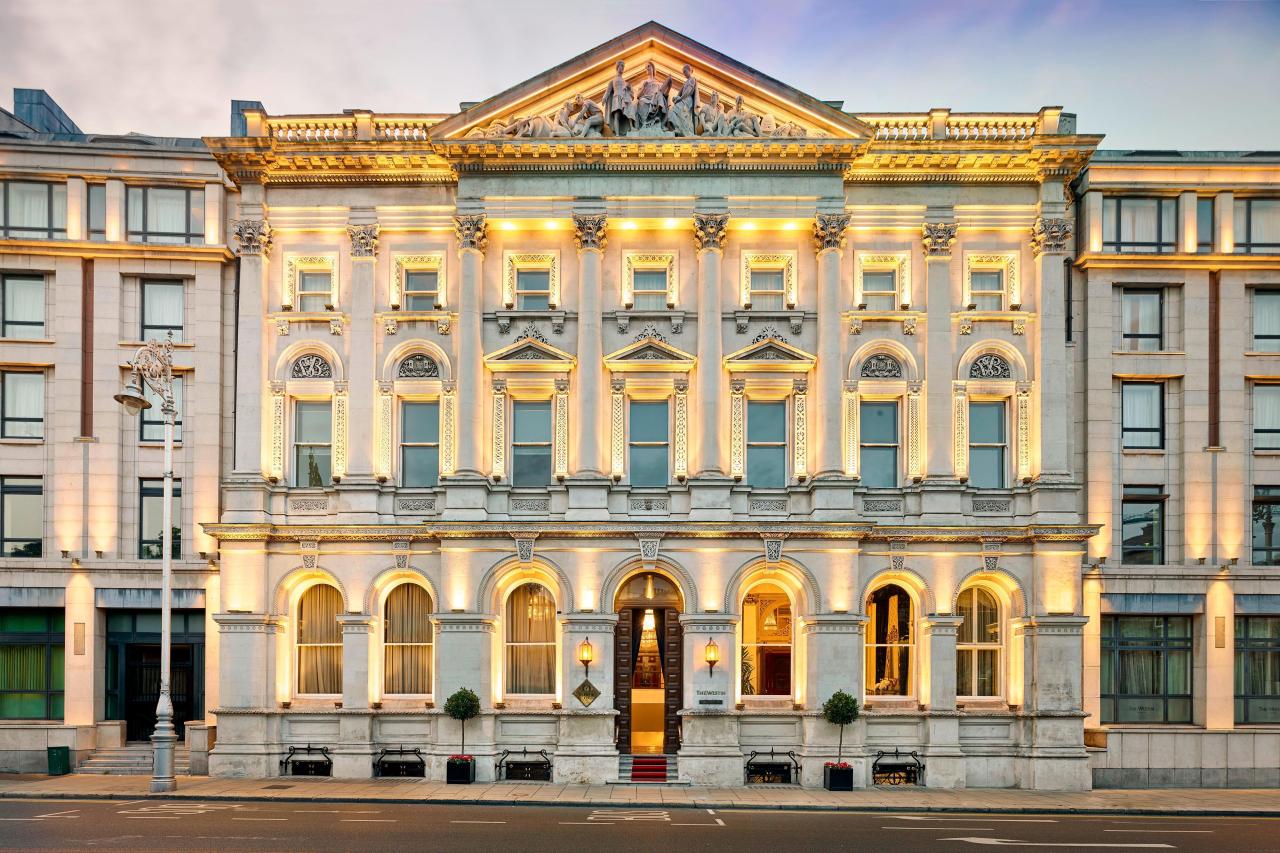
The city hotel landscape is not static; it’s a dynamic sector that continuously evolves to meet new demands, embrace sustainability, and leverage technological advancements.
A. Rise of Lifestyle and Boutique City Hotels
Beyond traditional business hotels, the past two decades have seen a significant rise of lifestyle and boutique city hotels. These properties prioritize unique design, curated experiences, and a strong sense of place, appealing to travelers seeking more authentic and visually engaging stays. They often feature:
A. Themed Interiors: Drawing inspiration from local art, history, or an avant-garde concept.
B. Social Hubs: Lobbies and public spaces designed as vibrant social gathering spots, not just transitional areas.
C. Curated Experiences: Offering local walking tours, art workshops, or exclusive access to hidden city gems.
This trend reflects a shift from mere functionality to a desire for memorable, localized experiences.
B. Extended Stay and Apart-Hotel Formats
As business travel patterns change and digital nomadism grows, extended stay and apart-hotel formats are gaining traction in cities. These properties offer:
A. Apartment-Style Living: Fully equipped kitchens, laundry facilities, and separate living/sleeping areas, providing a home-away-from-home feel.
B. Flexible Stays: Caters to guests needing accommodation for weeks or months, offering discounted rates for longer durations.
C. Hybrid Services: Blending hotel amenities (housekeeping, concierge) with the independence of apartment living.
This caters to the need for greater autonomy and cost-effectiveness for longer urban stays.
C. Sustainability and Green Initiatives
Urban hotels are increasingly adopting sustainability and green initiatives, driven by both consumer demand and corporate responsibility. This includes:
A. Energy Efficiency: LED lighting, smart climate control systems, and renewable energy sourcing.
B. Water Conservation: Low-flow fixtures, linen reuse programs, and greywater recycling.
C. Waste Reduction: Extensive recycling programs, composting, minimizing single-use plastics, and responsible sourcing.
D. Local and Ethical Sourcing: Prioritizing local produce, fair trade products, and supporting community initiatives.
These efforts reduce environmental impact and appeal to eco-conscious travelers.
D. Co-Working Spaces and “Work From Hotel” Trends
The pandemic accelerated the trend of remote work, leading many city hotels to integrate or enhance co-working spaces and promote “work from hotel” packages. These offerings typically include:
A. Dedicated Work Zones: Quiet areas with reliable internet, power outlets, and comfortable seating.
B. Day-Use Rooms: Allowing locals or transit guests to book a room just for the day to work or rest between flights.
C. Business Lounge Access: Providing exclusive access to amenities for productivity and networking.
This adaptation caters to the evolving nature of urban professional life.
E. Health, Wellness, and Safety Protocols
Post-pandemic, health, wellness, and stringent safety protocols have become paramount for city hotels. This includes:
A. Enhanced Cleaning Regimes: Implementing hospital-grade cleaning products and more frequent sanitization of public areas and guest rooms.
B. Air Filtration Systems: Investing in advanced HVAC systems and air purifiers.
C. Contactless Services: Promoting digital check-in/out, mobile ordering, and keyless entry to minimize physical touchpoints.
D. Wellness Programs: Offering in-room fitness options, healthy food choices, and partnerships with local wellness providers to address guest well-being.
These measures build guest confidence and ensure a safe environment.
The Economic and Social Impact of City Hotels
City hotels are more than just commercial enterprises; they are vital economic engines and social connectors that contribute significantly to the dynamism of urban centers.
A. Major Economic Contributors
City hotels are major economic contributors, generating substantial revenue through room sales, F&B, event bookings, and ancillary services. This revenue directly impacts local tax bases, funding public services and infrastructure development.
B. Significant Job Creators
The hospitality sector, especially city hotels, is a powerful job creator. They provide diverse employment opportunities across various skill levels, from management and sales to culinary, housekeeping, engineering, and security. This employment supports local households and contributes to the overall economic stability of the city.
C. Anchors for Urban Development and Revitalization
Often, the development of new city hotels serves as an anchor for urban development and revitalization. They can transform neglected areas, attract further investment in surrounding retail, dining, and residential projects, and significantly increase property values. Their presence often signals confidence in a city’s growth potential.
D. Supporting Local Businesses and Supply Chains
City hotels rely heavily on local businesses and supply chains for everything from fresh produce and artisanal products to laundry services, maintenance, and transportation. This creates a powerful multiplier effect, where hotel spending directly supports a wide array of local enterprises, fostering a vibrant local economy.
E. Enhancing a City’s Global Appeal
The presence of a strong hotel infrastructure, especially high-quality city hotels, is crucial for enhancing a city’s global appeal as a destination for tourism, business, and major events. It signals readiness to host international visitors and provides the necessary capacity and quality of accommodation to attract large-scale conventions and sporting events.
Choosing Your Ideal City Hotel: A Practical Guide
Selecting the right city hotel can significantly enhance your urban experience. Here’s how to make an informed choice:
A. Pinpoint Your Purpose and Priorities
Before anything else, define your purpose for visiting the city. Are you there for business meetings, sightseeing, a concert, or a family vacation? Your primary objective will dictate your priorities regarding location, amenities, and service levels. For example, a business trip demands proximity to corporate centers and robust Wi-Fi, while a leisure trip might prioritize access to cultural sites and vibrant nightlife.
B. Research Neighborhoods and Connectivity
Cities are diverse, with distinct neighborhoods. Research neighborhoods that align with your interests and ensure good connectivity to key areas. Use online maps to check proximity to public transport, attractions, and places you plan to visit. Consider walkability and safety.
C. Read Recent Reviews on Service and Cleanliness
Online reviews are invaluable. Pay close attention to comments about service quality (friendliness, efficiency of staff) and cleanliness. These are fundamental aspects of any hotel stay, and consistent positive feedback in these areas indicates a well-run establishment. Look for recent reviews to ensure relevance.
D. Verify Essential Amenities and Features
Double-check that the hotel offers your essential amenities. This might include:
A. Free, reliable Wi-Fi: Crucial for both work and staying connected.
B. Breakfast options: Is it included, or is there a convenient café on-site?
C. Fitness center: If exercise is important to you.
D. Business center/Meeting facilities: If traveling for work.
E. Parking: If you’re driving.
Don’t assume; verify to avoid surprises.
E. Compare Prices and Value Propositions
While price is a factor, focus on the value proposition. Compare rates across different booking platforms (hotel’s direct site, OTAs) and consider what’s included. A slightly higher rate might offer significant value through bundled amenities like breakfast, airport transfers, or a prime location that saves you time and money on transportation.
F. Assess Safety and Security Features
Especially in large cities, assess the hotel’s safety and security features. This can include 24-hour reception, secure room access (key cards, digital keys), and good lighting in public areas. Read reviews for any mentions of security concerns.
The Future of City Hotels
The trajectory for city hotels points towards even greater integration with technology, a stronger focus on personalization, and innovative approaches to urban living.
- Hyper-Localized, Experiential Stays: Future city hotels will deepen their immersion in local culture, offering hyper-localized experiences through partnerships with local artisans, chefs, and performers. Expect more curated “neighborhood tours” led by hotel staff or AI, revealing hidden gems.
- Seamless Smart City Integration: Hotels will become increasingly integrated with smart city infrastructure. This could mean real-time public transport updates displayed in lobbies, personalized recommendations based on urban events, or even direct booking of city services through hotel platforms.
- Modular and Adaptable Spaces: Urban hotels will feature more modular and adaptable spaces that can transform from co-working areas by day to vibrant social hubs or event venues by night, maximizing space utilization and catering to diverse needs.
- Predictive Personalization with AI: AI will move beyond basic recommendations to predictive personalization, anticipating guest needs before they even articulate them—from pre-setting room temperature based on arrival time and weather, to suggesting a preferred type of pillow based on past stays.
- Robotics for Repetitive Tasks: The deployment of robotics will expand for repetitive tasks like baggage handling, room service delivery, and enhanced cleaning/sanitization, freeing up human staff to focus on high-touch, personalized guest interactions.
- Advanced Air Quality and Wellness Technologies: With increased urban density, city hotels will prioritize advanced air filtration systems, biophilic design elements (bringing nature indoors), and personalized wellness tech in rooms to create healthy urban sanctuaries.
- Hybrid Co-Living and Long-Stay Models: As urban populations grow and remote work persists, more city hotels will embrace hybrid co-living and long-stay models, offering apartment-style living with hotel services for extended stays, blurring the lines between residential and hospitality.
- Digital Identity and Hyper-Convenience: Biometric check-ins, fully digital identity verification, and seamless payment methods will streamline every interaction, leading to an ultra-convenient, friction-free urban travel experience.
Conclusion
City hotels are indispensable anchors in the urban landscape, constantly adapting to the rhythms and demands of metropolitan life. They are not merely places to stay but dynamic centers of commerce, culture, and connection. As cities continue to evolve, so too will their hotels, promising an even more integrated, intelligent, and exciting future for urban travelers worldwide.

